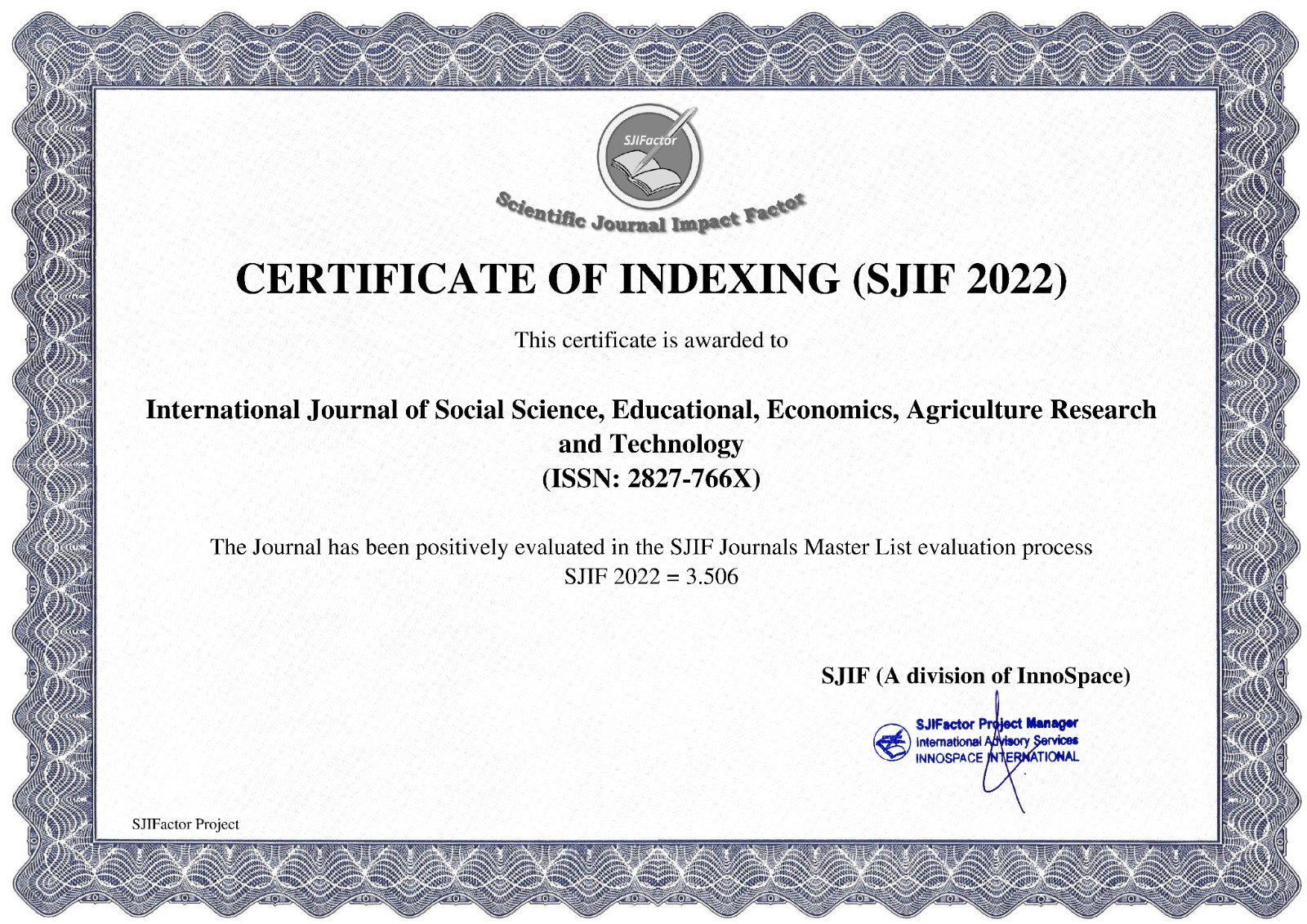THE INFLUENCE OF EMOTIONAL BRANDING, PERSONAL SELLING AND ELECTRONIC WORD OF MOUTH ON CONSUMER LOYALTY OF VASELINE PRODUCTS
Main Article Content
Fransiska Mariana Unenor
Nadia Sasmita Wijayanti
Yonas F. Riwu
The aim of this research is to find out how consumers loyalty to Vaseline goods is affected in the Kupang City neighborhood via emotional branding, human selling, and electronic word-of-mouth. The study uses an associative technique and a quantitative survey method. Data were collected with a survey table of 100 respondents of Vaseline product consumers in Kupang City. The primary data obtained were processed using the SPSS application. The technique for collecting data involved distributing questionnaires, while the method used for data analysis was multiple linear regression, with hypothesis testing conducted in conjunction with the F-test, t-test, and the coefficient of determination (R2) test. The findings showed that, while emotional branding had no discernible impact on customer loyalty, Both electronic and human word-of-mouth marketing had a favorable and considerable impact. Furthermore, it was discovered that customer loyalty was significantly impacted by the three independent variables taken together. According to the coefficient of determination (R2), consumer characteristics may be explained by the elements of digital word-of-mouth, personal selling, and emotional branding. The study's conclusions also provide valuable information for Kupang City's Vaseline product marketing plan. Companies need to focus on personal selling and electronic word of mouth because they have been proven to increase consumer loyalty. Conversely, the emotional branding strategy needs to be evaluated because it has not had a significant impact.
Arikunto, S. (2010). Prosedur Penelitian Suatu Pendekatan Praktik. Rineka Cipta.
Cron, W. L. & Decarlo, T. E. (2010). Sales management (I. . John Wiley & Sons (ed.)).
Djatnika, T. (2007). Manajemen Usahawan Indonesia. Komunikasi Pemasaran. Bandung. PT. Remaja Rosdakarya.
Fandy Tjiptono. (2000). Strategi Pemasaran (2nd ed.).
Fandy Tjiptono, G. C. (2011). Service, Quality dan Satisfaction. ANDI.
Gobe, M. (2005). Emotional Branding. Erlangga.
Gobe, M. (2010). Emotinal Branding. Allworth.
Goyette, I., Ricard, L., Bergeon, J., & Marticotte, F. (2010). Word of Mouth Measurement Scale for e-Services Context. Journal of Administrative Sciences, 27, 5–23.
Hennig-Thurau., et al. (2004). Electronic Word of Mouth Via Consumer-Opinion Platforms: What Motives Consumers to Articulate Themselves On the Intenet. Journal of Interactive Marketing.
Jannah, E. L., & Ningsih, L. S. R. (2023). Pengaruh Emosional Branding dan Customer Relationship Terhadap Loyalitas Konsumen. BIMA : Journal of Business and Innovation Management, 6(1), 47–54. https://doi.org/10.33752/bima.v6i1.5297
Kotler, P., & Keller, K. L. (2016). Marketing Management (15th ed.). Pearson Education Limited.
Kotler, P., & Keller, K. L. (2022). Marketing management (15th ed.). Pearson Education.
Lamb, et. al. (2010). Pemasaran. In 1. Salemba Empat.
Margono. (2004). Metodologi Penelitian Pendidikan. Rineka Cipta.
Masruroh, D., Harahap, R. S., & Wibisno, D. (2023). Pengaruh Electronic Word Of Mouth ( E-Wom ) Terhadap Loyalitas Konsumen Dengan Keputusan Pembelian Sebagai Variabel Mediasi ( Studi Kasus Pada Konsumen Wanita Monokrom Store Yogyakarta ). 3(2), 112–128. https://doi.org/10.53866/jimi.v3i2.283
McEwen. W.J. (2004). Getting emotional about brands. Journal of Business.
Riwu, Y. F., Natonis, S. A., Arthana, I. K., Anabuni, A. U. T., Dominikus, K., & Aman, T. (2024). Building Customer Trust : An Empirical Study in Marketplace. 6, 6–10. https://doi.org/10.37034/infeb.v6i4.1002
Rizfie, M. D. (2023). Pengaruh Digital Marketing Personal Selling Dan Word of Mouth Terhadap Loyalitas Konsumen Dan Keperayaan Konsumen Sebagai Variabel Intervening. Jubisma, 5(1), 38–50. https://doi.org/10.58217/jubisma.v5i1.73
Seran, S. (2020). Metodologi Penelitian Ekonomi dan Sosial. Deepublish.
Suryani, A. D., Prakosa, A., & Basri, A. I. (2021). Pengaruh Emotional Branding, Customer Experience, dan Brand Trust Terhadap Customer Loyalty pada Samsung Experience Store. Jurnal Penelitian Ekonomi Dan Bisnis, 1(1), 19–26. https://journal.actual-insight.com/index.php/investasi/article/view/40
Tjiptono, F. (2006). Manajemen Jasa. Andi Offset.
Wiratna Sujarweni. (2022). Metodologi Penelitian. PT. Pustaka Baru.
Yang, F. X. (2017). Effects of Restaurant Satisfaction and Knowledge Sharing Motivation on eWOM Intentions: The Moderating Role of Technology Acceptance Factors. Journal of Hospitality and Tourism Research, 41(1), 93–127. https://doi.org/10.1177/1096348013515918






















